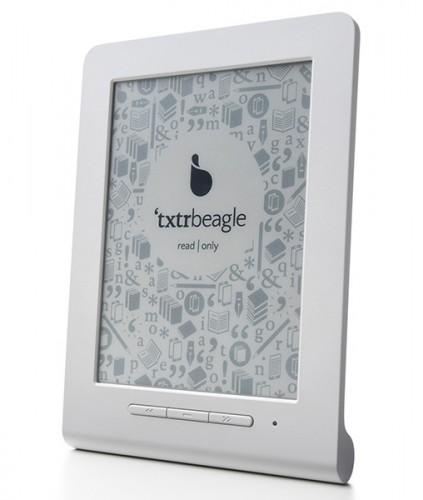In October 2012, German electronics company Txtr launched the world’s cheapest and smallest e-Reader called Beagle for €10 ($12). The e-Reader was being sold through wireless carriers in Europe and people also showed great interest buying it. The good news is, Txtr Beagle e-Reader is now available in the US. But for this, U.S. users have to pay more than 5 times the original price.
The Beagle weighs 128 grams (with batteries) or 111 grams (without batteries). It measures 140 mm x 105 mm x 4.8 mm and comes with a small 5-inch Electronic Ink screen and 4 GB memory. The Beagle neither have any touchscreen, 3G, Wi-Fi connectivity or fixed rechargeable battery nor any USB based data transfer interface. In fact, Beagle can’t process ebooks on its own, so it needs the Txtr Android 4.0 app to convert an ebook to page images and transfer the page images to the Beagle over Bluetooth. Users can transfer data only via Bluetooth. It can hold 5 folders full of page images, with one folder set aside for each title.
When beagle was launched in Europe, its price was €10 or $12 (still now, it is being sold at that price). Now the device has reached the U.S. But, its price is not $12 or something like that in the U.S. Rather people have to pay $69 including a $10 voucher for the world’s ‘cheapest’ e-Reader.
Source: Liliputing
[ttjad keyword=”kindle”]


Another sad misrepresentation not worthy of the name journalism!
Giving a price for a gadget that’s being sold with a contract, without specifying the terms and costs of that contract is utterly meaningless. What good is it, when you get Txtr for $12 if you end up paying another $10 per month for 2 years? What really is the price then?
Any comparison based on this so-called ‘price’ is useless hogwash…
It was clear from the start: with Txtr being sold on contract, it would end up costing just as much or more than other reader units from different companies that often have a nicer feature set.